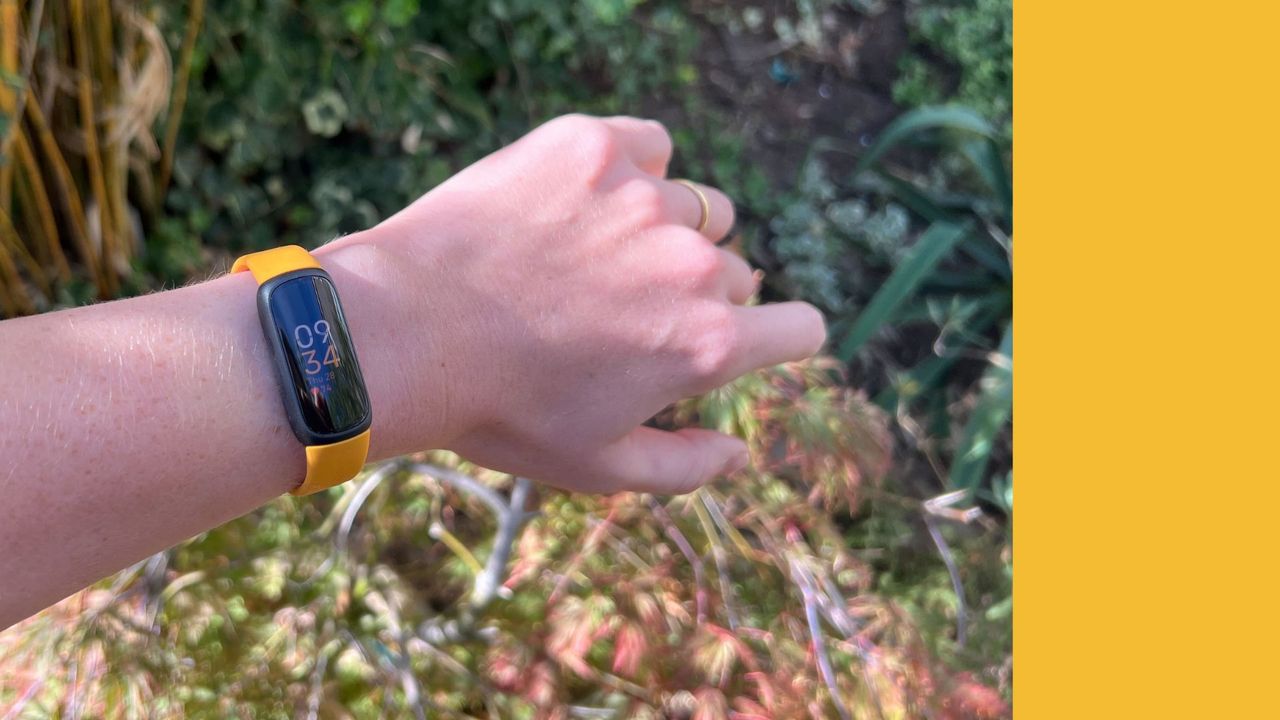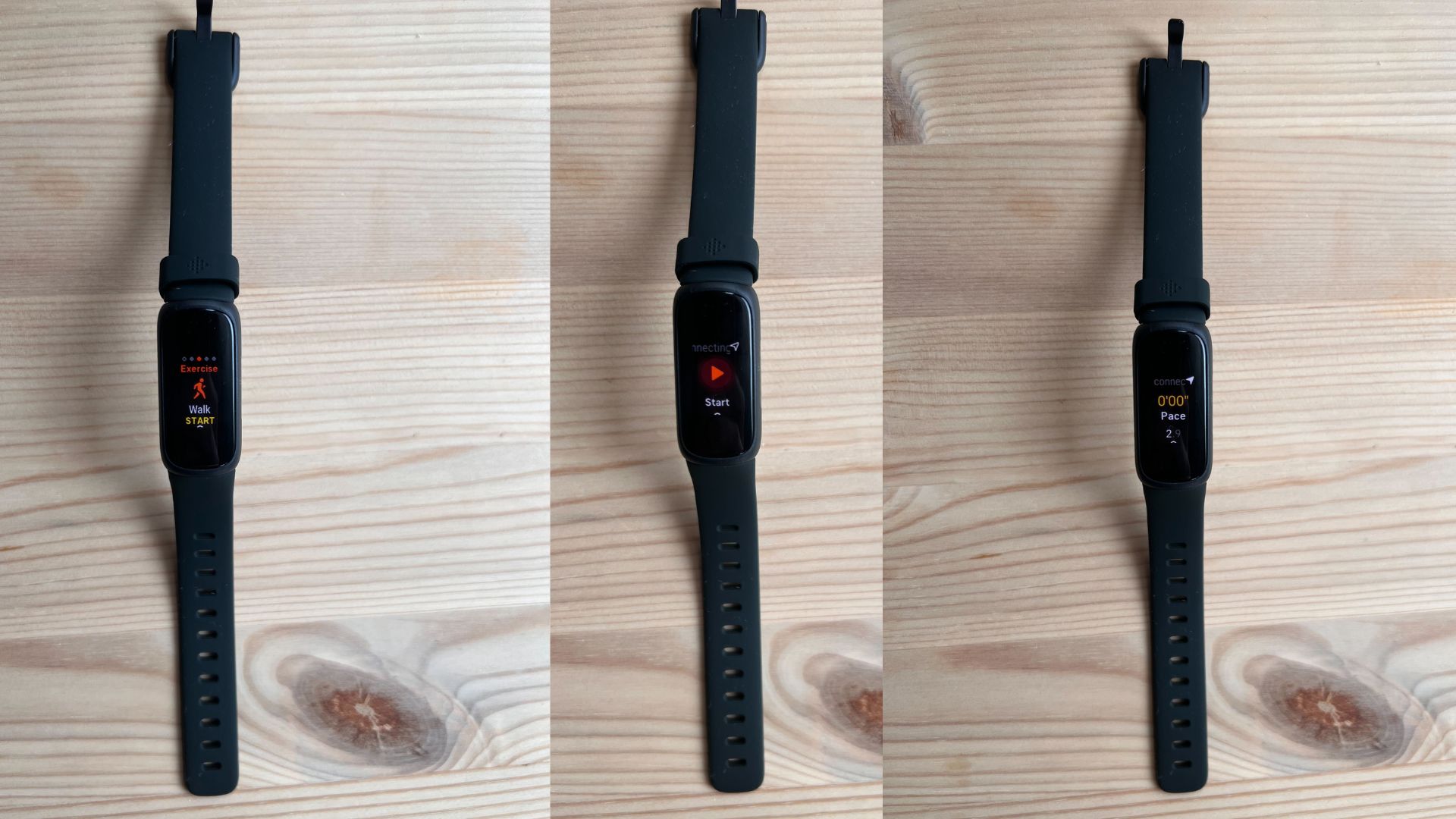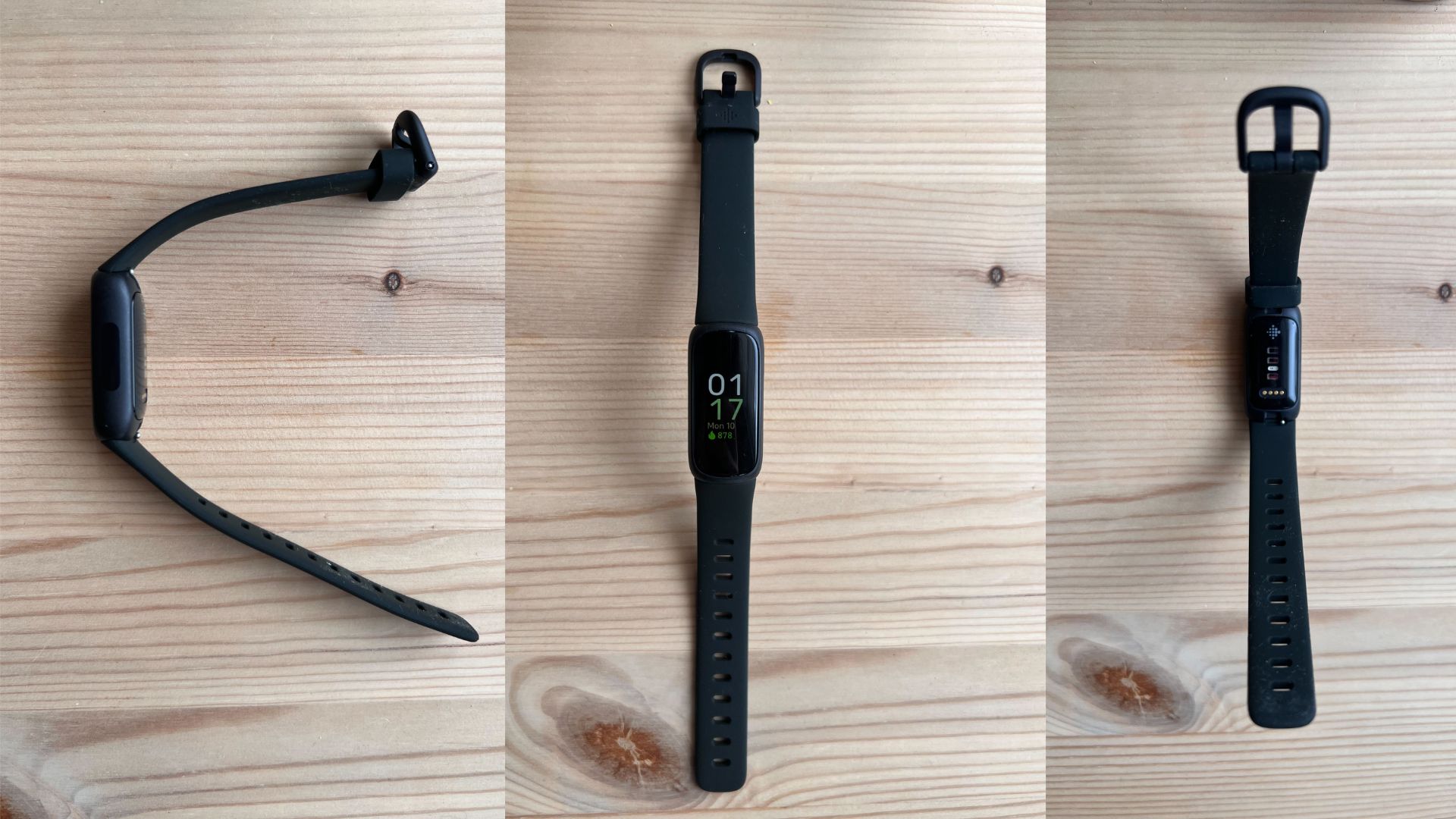
When looking for a good deal on a fitness tracker, many people try to find savings on their tried and tested favourites, and normally, I'd recommend doing so. However, if you're looking for a watch that tracks steps, records workouts, and monitors your sleep while being comfortable and discreet on the wrist, then the Fitbit Inspire 3 should be your top choice.
Released in September 2022, this watch quickly made its way onto my list of best Fitbits as it integrates completely with the Fitbit universe, offering live heart rate, step count, and Activity Zone Minutes monitoring on the wrist, with dozens more insights available in the app.
As woman&home's digital health editor, I've had my hands on more than a hundred of the best fitness trackers, but the Fitbit Inspire 3 remains the only one I'll recommend to those looking to buy for under £100. Features aside, its reliability is unmatched by those at the same price point.
Fitbit Inspire 3 review
Specifications
- Size: 1.55" l x .73" w x .46" h
- Weight: 110g
- Materials: Plastic, glass, silicone
- Built-in GPS: No
- Battery life: Up to 10 hours
- Charge time: 2 hours
- Water-resistant: Yes, up to 50m
- RRP: £84.99
Available in black, purple, and orange, the Fitbit Inspire 3 isn't only one of the more practical Fitbits in the range, but also comes in the most exciting range of colours.
Who is the Fitbit Inspire 3 suitable for?
While anyone can wear the Fitbit Inspire 3, those who want to check in regularly on their wellbeing via activity and sleep data will benefit most, as it covers the basics with great readability on the wrist and in the app.
Equally, it's a great choice if you're new to regular exercise and looking to boost your motivation by aiming for a certain step count or time spent exercising, as all that data is available to see on the wrist at all times.
I particularly love the Fitbit Inspire 3 as an overnight tracker, however. As the design is slimmer than other types of Fitbit and the screen is much smaller, I've found it's much less disruptive to wear in bed - and significantly more comfortable. At the same time, though, it offers the same sleep tracking data as larger devices.
As the watch doesn't come with on-wrist GPS, if you're a keen walker, runner, cyclist, and so on, then you'd be better off opting for an alternative like the Google Pixel Watch 3, which sits in the same family after the tech giant bought out the brand a few years ago.
What are the best features on the Fitbit Inspire 3?
Activity tracking
Whether you're looking to complete 10,000 steps every day, start training for a 5km race, or record your metrics during strength training, the Fitbit Inspire 3 has you covered. From a simple glance at my wrist, I can view my step count for the day, heart rate, and calorie burn, along with the day's date and (importantly) the time.
There are over 20 different workout modes to choose from, with your favourites activated via a quick right swipe of your finger. You can only have six workouts on your device at once, making a change from other devices, but I found during testing that this was more than enough. It gave me the chance to prioritise the activities I actually did on my wrist and made finding the mode quickly before starting my session the simplest process it could be.
At the end of a workout, I found it easy to end the session and view my vital statistics, such as distance travelled, time, and pace when running or walking. As the watch doesn't have in-built GPS, I did have to take my phone with me, but I'd do that anyway to connect to my headphones and listen to music.
The rest of the stats are available via the Fitbit app. The Fitbit Premium subscription is also available with this watch for even more insights, and you get a 6-month free trial on purchasing. If you're serious about improving your health, then I'd recommend trying it out.
Even in the free app, however, you can see an overview of every workout, including the map that syncs with your phone's mapping system (for me, this was Apple Maps, as I have an iPhone) to reveal your route and heart rate progression through the workout.

Sleep tracking
After at least one night of wearing the tracker to bed (although I'd suggest at least seven days to get an accurate reading), you can view the time you spent asleep, what kind of sleep you were in (REM, light, or deep sleep), and the quality of your sleep via your Sleep Score.
A good sleep score sits between 80 and 100, revealing how various habits impact your downtime. For example, you'll have a lower sleep score if you get to sleep late at night, only sleep for a few hours, wake regularly during the night, and so on. In the past, I've found it a useful way to identify problems in my sleep hygiene and routine and make changes.
For example, during the summer last year, I felt particularly tired when I woke up in the morning, despite clocking up almost eight hours of sleep every night. Looking at my sleep data in the Fitbit app, I saw that I was consistently waking up for a few minutes around 3 or 4 am, when the sun was starting to come up. I ordered blackout blinds the following day and have never slept better.
The insightful sleep tracking features aren't unique to this model, and you'll get more on advanced devices like the Oura Ring Generation 4, but if you're new to logging your sleep, then it's a great place to start.
Plus, as the Fitbit Inspire 3 only weighs 110g, it has a barely-there feel on the wrist at night, so it feels easy and comfortable to wear for hours on end. Most nights, I totally forgot I was wearing it.

Health tracking
Another key way to keep an eye on your health is to watch for signs of high cortisol - i.e. stress. The Fitbit Inspire 3 makes this easy to do in three ways: Daily Stress Management Score, mood logging, and combining various data points to figure out how stress impacts your movement and sleep habits.
The Daily Stress Management Score is the most useful, I believe. Similar to the Sleep Score, this score uses your sleep, heart rate, and activity data to give you a score from 1 to 100. You can also log your mood for more precise insights.
I've found it to be a useful picture of my current resilience levels and a good way to work out how to handle the coming days. When my Daily Stress Management Score dips below average, that's a sign for me to have a few more rest days in my workout routine, have a lighter social life for the week, or get in a few early nights.
Where other health tracking features are concerned, the Fitbit Inspire 3 has a mix. You won't find an ECG on this device, but you can (roughly) measure your blood oxygen levels, which is a feature on more advanced devices.
Is the Fitbit Inspire 3 worth buying in 2025?
Yes, whether you're looking for an overnight tracker to keep an eye on your sleep or an activity tracker to make sure your walking workouts are making a difference, the Fitbit Inspire 3 is worth buying for under £100.
While it lacks some of the advanced features of other Fitbits, it covers the basics with impressive accuracy and insights, making it supremely good value for money in a market where the average tracker costs £300+.
For a small upgrade, I would suggest buying the Fitbit Charge 6 (£139.99 RRP) as this is a better fit for anyone more serious about their workouts or looking to focus on running, hiking, or cycling. It has better integration with the Google ecosystem as well, since it was released after the tech giant took over the brand.
Is Fitbit Inspire 3 waterproof?
The Fitbit Inspire 3 is water resistant up to 50 meters, making it the perfect pick for anyone who enjoys casual swimming workouts or reckons they'd end up showing with their Fitbit on.
If you're planning to go any deeper than this or spend excessive time in the water, it may be better to remove the watch before heading in.
Fitbit Inspire 3 vs Charge 6
Not sure whether to go for the Fitbit Inspire 3 or the Fitbit Charge 6? I've got you covered. Here's how to work out which one you should buy:
- Activity: Are you a keen runner, cyclist, or walker? If so, then the Fitbit Charge 6 is going to be the better option as it has built-in GPS, integration with Google Maps, and Bluetooth connectivity with some treadmills and bikes.
- Day-to-day: The Fitbit Charge 6 has YouTube Music controls and much better integration with the Google universe, allowing you to pay on your wrist via Google Wallet and access Google Maps on the move. You can receive call and text notifications on both.
- Simplicity: There's no denying that the Fitbit Inspire 3 is the simpler option. If you're just looking to keep an eye on your movement and sleep, there's no need to spring for the more advanced Fitbit Charge 6, as this one covers the basics so well.
- Price: As the Fitbit Inspire 3 sits at £84.99 when full-price, it's one of the cheapest and best-value fitness trackers on the market. The Fitbit Charge 6 comes in at £139.99 so it's not a huge price difference, but still one worth thinking about.
- Design: The Fitbit Charge 6 has a slightly larger face than the Inspire 3, making it a better option for those who don't mind their fitness tracker being slightly larger if it makes stats easier to view. Otherwise, they are very similar.







